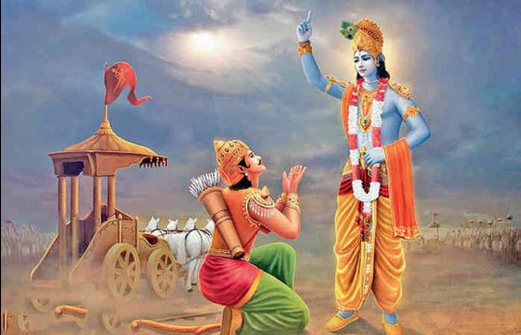Bipin Bihari Rout
Since the beginning of creation, man’s eternal quest for immortality has been so fundamental that we find it almost impossible to conceive of dying. Though death is inevitable, the paradox of the situation is that we do not want to die. Instead, most of us would like to live in full vigour, without wrinkles, grey hair or disease and to enjoy life forever! We know that we come into existence at a certain time, grow, mature, reproduce and gradually dwindle and die. Our physical body is unreal, for it will perish in due time. In spite of this fact, the human being always feels that some exception might be found in his case. Even Pulitzer Prize winner William Saroyan, the author of “The Human Comedy”, wrote in the days just prior to his death; “Everybody has got to die but I have always believed an exception would be made in my case. Now What ? We seldom think about what happens after death. Some say that death is the end of everything. Some believe in hell and heaven and still others hold that this life is only one of many we have lived and will live in future. Nearly 1.5 billion people of the world accept reincarnation (transmigration of the soul from one physical body to another) as an irrevocable fact of life.The arguments for and against the doctrine of a pre-existing soul reincarnating through many lives are numerous. Among all the available literature the Vedas are the oldest on earth and present the most comprehensive and logical explanations of the science of reincarnation. The most fundamental information regarding reincarnation appears in the Bhagavad-Gita which was spoken some 5000 years ago by Lord Krishna, to His friend and disciple, Arjuna, on the battle field of Kurukshetra in Northern India. Lord Krishna tell Arjuna: “Both you and I have passed through many births; you know them not, I know them all.” He further says: “Never was there a time when I did not exist, or nor you, nor all these kings nor in the future shall any of us cease to be.” The most widespread theory that has been held by man about himself is that he is an immortal soul entity, separate from the mortal body. According to the Bhagavad Gita, the sould enters another body after leaving them previous one. “For the soul there is neither birth nor death… He is not slain when the body is slain.” The Gita further instructs “Know that which pervades the entire body is indestructible. No one is able to destroy the imperishable soul.” Henry Ford held the following opinion “Terrestrial birth is death from the spiritual point of view and death is a celestial resurrection. The alternation of both lives is necessary for the development of the soul, and each of them is at once the consequence and the explanation of the other. Whosoever is imbued with these truths is at the very heart of the mysteries at the centre of initiation.”The human individual functions as an organised system because of the three primal constituents of which it consists the body, the mind and the self (spirit). The living organism cannot exist without the correlation of these three constituents. These constituents cannot be identified separately from one question arises as to where the self of a human offspring comes from Obviously, the unborn self can not originate either from the male of female parent. It seems equally impossible for the child to inherit the mind from either parent. The mind of an individual is distinct from the self and the body as well, although closely associated with both. It is well known that physical processes can produce physical light and not the light of consciousness marked by self awareness, which distinguishes spirit from matter. Man’s spiritual self is not actually born nor does it die, but transmigrates from one physical body to the other under the law of Karma. The human form of life is very rare. The soul gets a human body only after evolving through millions of births. And it is only in the human form that the living entity has the intelligence to understand the law of Karma. Nature has endowed man with articulate speech and reasoning in contrast with other living beings.In concluding, I would like to quote Edward Carpenter(Civilization its cause & cure,1889, p.249), “If we have decided what the final purpose or Life Man is; then we say that what is good for that purpose is finally ‘good’ and what is bad for that purpose is ‘evil'” In the words of Swedenborg; “All Religion is of life and the life of Religion is to do good. The Kingdom of Heaven is the kingdom or uses or mental service.”
Srivihar Colony, Cuttack
Mob.: 9437666453











More Stories
Low vision clinic inaugurated at AIIMS Bhubaneswar
Urban education programme comes in handy for Odisha’s tribal, dalit kids
Now country ‘aatank’ struggling for ‘aata’: PM